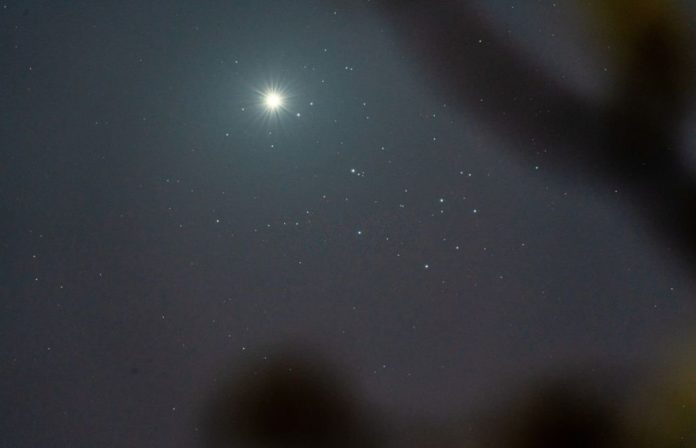A new study concludes that an ‘aerial’ form of extraterrestrial life is not responsible for the peculiar behavior of sulphur in Venus’ atmosphere.
The ‘life in the clouds’ notion, which astronomers have theorized about for decades, was put to the test by researchers from the University of Cambridge, who discovered that life cannot explain the composition of Venus’s atmosphere using a mix of biology and atmospheric chemistry.
Any life form that consumes food and excretes waste is predicted to leave chemical traces in a planet’s atmosphere as it does so. But the scientists from Cambridge didn’t find any signs of these prints on Venus.
Even if Venus is lifeless, the researchers claim their findings, published in the journal Nature Communications, could be beneficial in investigating the atmospheres of other planets in the galaxy, as well as the eventual identification of life beyond our Solar System.
“We’ve spent the past two years trying to explain the weird sulphur chemistry we see in the clouds of Venus,” says co-author Dr Paul Rimmer of Cambridge’s Department of Earth Sciences. “Life is pretty good at weird chemistry, so we’ve been studying whether there’s a way to make life a potential explanation for what we see.”
Given the known sources of chemical energy in Venus’s atmosphere, the researchers employed a combination of atmospheric and biochemical models to examine the expected chemical processes.
“We looked at the sulphur-based ‘food’ available in the Venusian atmosphere – it’s not anything you or I would want to eat, but it is the main available energy source,” adds Sean Jordan, the paper’s first author from Cambridge’s Institute of Astronomy. “If that food is being consumed by life, we should see evidence of that through specific chemicals being lost and gained in the atmosphere.”
The models looked at how much sulphur dioxide (SO2) there was in the atmosphere of Venus. Most of the SO2 in the air on Earth comes from volcanoes. Lower in the clouds on Venus, there is a lot of SO2, but it seems to get “sucked out” of the air at higher altitudes.
“If life is present, it must be affecting the atmospheric chemistry,” explains co-author Dr Oliver Shorttle of the Department of Earth Sciences and Institute of Astronomy at the University of Cambridge. “Could life be the reason that SO2 levels on Venus get reduced so much?”
Jordan’s models detail a series of metabolic reactions that the hypothetical organisms would undergo to produce both “food” and waste. The researchers ran the model to investigate if these metabolic responses could explain the decrease in SO2 levels.
They discovered that metabolic reactions can cause a decline in SO2 levels, but only if other chemicals are produced in high quantities that aren’t visible. The findings impose a hard limit on the amount of life that may live on Venus without destroying our understanding of how chemical processes in planetary atmospheres work.
“If life was responsible for the SO2 levels we see on Venus, it would also break everything we know about Venus’s atmospheric chemistry,” adds Jordan. “We wanted life to be a potential explanation, but when we ran the models, it isn’t a viable solution. But if life isn’t responsible for what we see on Venus, it’s still a problem to be solved – there’s lots of strange chemistry to follow up on.”
Although no sulphur-eating life has been discovered in Venus’ clouds, the researchers believe their way of analyzing atmospheric signs will be useful when the JWST, the successor to the Hubble Telescope, begins returning images of other planetary systems later this year. Some of the sulphur molecules in the new study are visible with JWST, thus learning more about our next-door neighbor’s chemical behavior should aid scientists in identifying comparable worlds throughout the galaxy.
“To understand why some planets are alive, we need to understand why other planets are dead,” Shorttle says. “If life somehow managed to sneak into the Venusian clouds, it would totally change how we search for chemical signs of life on other planets.”
“Even if ‘our’ Venus is dead,” Rimmer, who is also linked with Cambridge’s Cavendish Laboratory, says, “it’s possible that Venus-like planets in other systems could host life.”
“We can take what we’ve learned here and apply it to exoplanetary systems – this is just the beginning.”
Image Credit: Getty
You were reading: Venus Seems “Dead” As No Signs Of “life In The Clouds”
